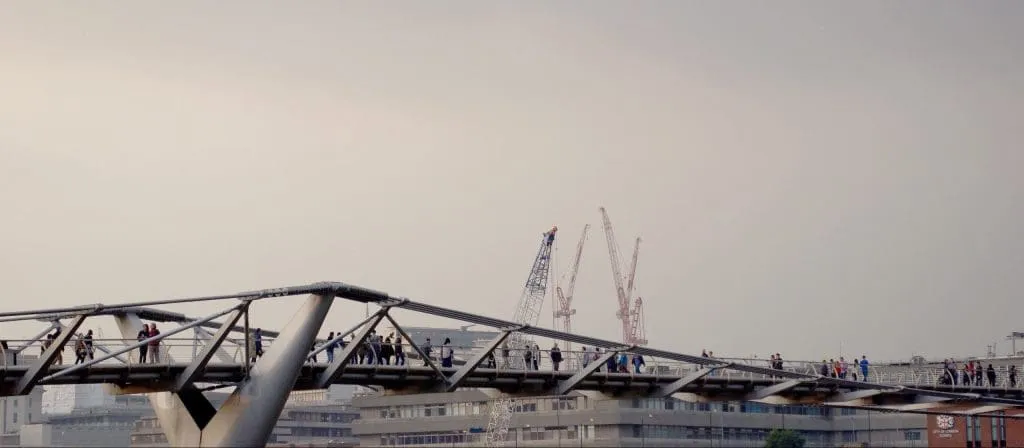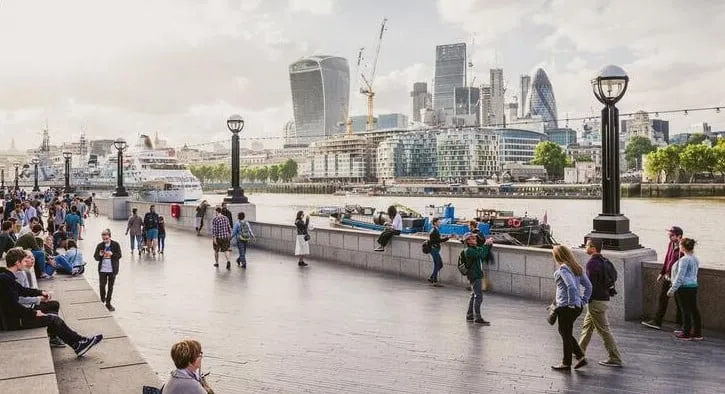Further Submissions and Fresh Claims
As part of the process of claiming asylum in the UK, some Further Submissions may be processed as Fresh Claims.
For more information about how IAS could help you with your immigration case, including if you need assistance with claiming asylum in the UK, speak to one of our legal advisers today. Call us on 0333 4149244, or contact us online.
Read our 1001 reviews
What Are Further Submissions and What Is a Fresh Claim for Asylum?
Further Submissions is the name given to further representations given to the Home Office for consideration following an earlier unsuccessful initial asylum claim.
The Home Office will only treat Further Submissions as a Fresh Claim for Asylum if the new evidence or information:
- Had not already been considered; and
- Taken together with the previously considered material, created a realistic prospect of success, notwithstanding its rejection.
In examining whether Further Submissions amount to a Fresh Claim, the Home Office will undertake a two-stage test by first asking the following:
Part 1: Has the New Information Already Been Considered?
If the information provided is not new and has, for example, already been considered by the Home Office or the Tribunal, this test is not met, and the representations will not be treated as a Fresh Claim. In this case, the Home Office will not then go on to consider the second stage of the test unless there is a significant change in either the applicant’s country situation or applicable case-law and country guidance.
If the Home Office is satisfied that the new information has not already been considered, they must then proceed to the second stage of the process:
Part 2: Is There a Realistic Prospect of Success?
The Home Office will look to see whether it is arguable that, had the information or evidence previously been available, a different view could have been taken by an Immigration Judge. The new evidence will be looked at alongside previously submitted information and documents and not in isolation.
If this test is not met, i.e. the Home Office accepts that the new information or evidence has not previously been considered but does not consider it is arguable that an Immigration Judge could have taken a different view had it previously been available, the claim will be refused without a right of appeal to the First-tier Immigration Tribunal.
However, if this second test is met, the Further Submissions will be treated as a Fresh Claim. The Home Office may then either look to grant status if they are satisfied that this is warranted in light of the new evidence, or still refuse the application on the grounds that, whilst the claim is arguable, it does not in their view fully overcome the previous reasons given for refusing the claim. Should this happen, the refusal will attract a right of appeal before the First-tier Immigration Tribunal.
How Are Further Submissions Made?
Further Submissions must generally be made in person at a Home Office Service and Support Centre (SSC). An appointment must first be made by calling the Further Submissions Unit. An applicant will then hand in new evidence and other materials relating to their claim at the appointment. They will usually also enrol biometrics at the same time.
There exist a number of exceptions to the in-person process, and it may be possible for a claim to be submitted remotely if the Home Office is satisfied that their criteria is met.
Who Can Make Further Submissions and How Long Do They Take?
Anyone who has previously claimed asylum and now has new evidence, information or a change of circumstances they wish to present to the Home Office is eligible to consider making Further Submissions.
Further Submissions can be made at any time.
There is no published processing timescale for Further Submissions. They can typically take up to 12 months to decide and, in some cases, even longer.
What Happens Whilst I’m Waiting for a Decision?
Under the Immigration Rules, an applicant awaiting a decision on their Further Submissions claim is not to be removed from the UK whilst their application is being processed.
An applicant may, on request and subject to certain conditions, be issued with permission to work if their application has been pending for 12 months and remains undecided at that time.

What Happens Once My Further Submissions Are Submitted?
The Home Office will assess the new information and evidence provided in line with the process set out above. They will also look at previous decisions they have made relating to any prior claims along with previous decisions made by Immigration Judges.
For any claim submitted from 28 June 2022 onwards – regardless of when you first entered the UK and made your initial claim – the Home Office will also now consider whether you will, if your claim is successful, be eligible for Refugee Permission (known as Group 1) or Temporary Refugee Permission (Group 2).
In making this decision, the Home Office will consider whether you:
- Came to the United Kingdom directly from a country or territory where your life or freedom was threatened, and
- Presented yourself without delay to the authorities.
The Home Office will examine how you entered the UK and whether you were able to exercise agency or control over your ability to seek protection in another country en-route to the UK. If the Home Office intends to place you in Group 2, you will have the opportunity to challenge this by submitting representations within 10 days.
In rare cases, the Home Office can invite you to an interview to obtain further information regarding your Further Submissions.
What Are the Possible Outcomes of Further Submissions?
When examining Further Submissions, the Home Office can give consideration to the UN Refugee Convention, the European Convention on Human Rights, the Human Rights Act 1998, family and private life, discretionary leave policies, compassionate and exceptional circumstances and relevant domestic legislation.
Given the above, there are a number of possible outcomes to Further Submissions such as:
- A grant of Refugee Permission for 5 years
- A grant of Temporary Refugee Permission for an initial period of 30 months
- A grant of Temporary Humanitarian Permission for an initial period of 30 months
- A grant of leave outside the rules for an initial period of 30 months
- A grant of discretionary leave for an initial period of 30 months on Family Life, medical or other grounds
- A refusal with a right of appeal
- A refusal with no right of appeal (and a possible certification of the claim as being clearly unfounded)

Should I Make Further Submissions?
If you have new evidence or information that was not previously available, and you believe that had it been available it could have altered the outcome of a previously unsuccessful claim, then it is possible for you to consider making Further Submissions.
Similarly, if the situation has changed in your country of origin since your last claim, or objective guidance and case-law relating to your country or origin has been updated, and the changes support your view that you will face harm or persecution on return, you may have grounds for pursuing Further Submissions.
Whether you choose to do so may depend on the quality of the new evidence or information available to you and the findings made in previous decisions, or be dependent upon the specifics of any updated country guidance. Such factors and considerations will need to be examined before proceeding.
What Are Some Examples of Further Submissions?
Below are examples of real-life Further Submissions that our lawyers have assisted our clients with:
Further Submissions – Religion & Family Life
An Iranian national entered the UK in 2017 and claimed asylum. He feared persecution in Iran due to his Religion as he had converted from Islam to Christianity. His initial claim was refused and although he appealed against the decision, his appeal was dismissed by an Immigration Judge in 2018.
Further submissions were made for our client in 2020. He had continued to attend Church and had, by this time, formed a relationship with a British national who had parental responsibilities. In support of his claim a detailed witness statement was taken from him and his partner, along with evidence of family life, Church attendance and references from church members.
The Further Submissions addressed the previous reasons given for refusal and provided an update on our client’s ongoing practice of his Religion and provided new information regarding his Private & Family Life in the UK.
These Further Submissions resulted in a grant of Refugee Status.
Further Submissions – Political Opinion & Family Life
A Nigerian couple arrived in the UK in 2008 to work and later claimed asylum owing to a fear of persecution in their country of origin due to their political opinions. Their claim was refused by the Home Office and their subsequent appeal before the First-tier Tribunal was also dismissed. In the meantime, the couple’s daughter was born in the UK.
As part of their Further Submissions made in 2020, representations were made in respect of their daughter who was born in the UK and who was now 7 years old.
These Further Submissions resulted in a grant of Discretionary Leave for the family.
Further Submissions – Change in Country Situation
A Libyan national entered the UK in 2009 as a student and later claimed asylum in 2011 following internal conflict in his country. His claim was refused, along with his subsequent appeal before the First-tier Immigration Tribunal.
Following a change in case-law and country guidance which stated that his country was not safe to return to, Further Submissions were submitted. Our client’s circumstances had not changed, but the country situation and the perception of the risk to him on return, had.
These Further Submissions resulted in the grant of Humanitarian Protection.
Further Submissions – Membership of a Particular Social Group
An Iraqi national and her partner entered the UK in 2015 to claim asylum. Our client feared persecution in Iraq for “honour crimes”. Her initial claim was refused and then dismissed by the First-tier Tribunal. A second claim was made several years later which ended with the same result.
We assisted our client in making Further Submissions in 2020. Our client had new evidence relating to threats she had received from family members in Iraq.
These Further Submissions resulted in a refusal by the Home Office with a right of appeal.
We represented our client before the First-tier Tribunal and were able to provide medical evidence in addition to documents previously presented and made representations relating to the Private & Family Life of our client, her partner and children in the UK who had lived here for many years.
The appeal against the refusal of these Further Submissions resulted in a grant of Refugee Status for our client and her family members.
How Can IAS Help?
At IAS we have an experienced team of specialist lawyers who specialise in human rights, asylum, and protection claims. Our team will be able to offer bespoke advice on the options available to you and provide you with a realistic view of your prospects of success in making Further Submissions.
Our lawyers will undertake a review of any relevant previous decisions from the Home Office and Tribunal to identify the reasons why prior claims were unsuccessful and compare them with the new evidence or information you wish to present. If you do not have full papers available to you, you can additionally instruct our lawyers to submit a Subject Access Request on your behalf to the Home Office.
If you wish to submit Further Submissions, our lawyers can help to prepare your claim with written representations, drafting statements, obtaining supporting country information, assessing your evidence and compiling your claim ready for submission. Our lawyers will even handle the process of booking your submissions appointment at the Home Office and respond to any notices regarding a Group 1 or Group 2 decision.
In the event of a grant of status, our lawyers will be able to provide you with advice on your conditions of stay and assist with any further services you may be entitled to, such as a Travel Document application or Family Reunion application.
In the event of a refusal, our lawyers will be able to advise you on your onward right of appeal to the First-tier Tribunal and will be available for to represent you during the appeal process and before the Immigration Judge. If your Further Submissions are refused without a right of appeal, our lawyers can be instructed to challenge the decision through the issue of a Pre-Action Protocol (PAP) letter.
For more information about our services and what we could do for you, reach out to us on 0333 4149244, or contact us online.
Table of Contents
Table of Contents will appear here.Table of Contents
Table of Contents will appear here.Legal Disclaimer
The information provided is for general informational purposes only and does not constitute legal advice. While we make every effort to ensure accuracy, the law may change, and the information may not reflect the most current legal developments. No warranty is given regarding the accuracy or completeness of the information, and we do not accept liability in such cases. We recommend consulting with a qualified lawyer at Immigration Advice Service before making any decisions based on the content provided.















